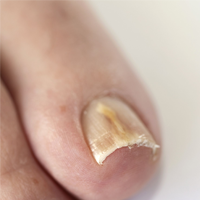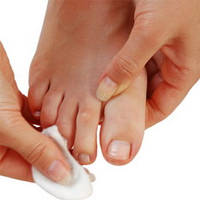Getting to the Truth About Nail Fungus

Nail fungus is something most people know very little about. We may see a few different advertisements or commercials about nail fungus treatment and prevention, but we really do not know what nail fungus actually is. Nail fungus is a fungal infection of the nail also known as onychomycosis in the medial world.
Studies show that while nail fungus is a common occurrence, it will typically infect the toenails. Very seldom will nail fungus attack the fingernails. Further studies show that approximately twelve percent of the U.S. population has some sort of nail fungus and it is typical with age.
People aged 40 and older are the most susceptible to nail fungus. Like many other forms of affliction, nail fungus is hereditary; it seems to run in families. Some others may be more susceptible to nail fungus as well such as those who have a suppressed immune system due to certain diseases or treatments. People who have been diagnosed with AIDS, have received transplants, are undergoing cancer treatments are at risk.
In order to determine if you have nail fungus, you must make an appointment with a dermatologist. They will scrape your infected nail and submit it for microscopic examination. The nail will be carefully examined with a microscope and, occasionally, cultured, to determine what type of fungus is growing in the nail. Your dermatologist will determine if you have nail fungus and which type you have. Dermatophytes are nail fungus found in the toenails. Yeast is the type of nail fungus found in the fingernails.
If your dermatologist has diagnosed either type of nail fungus, he or she will prescribe one of many varieties of treatments available to combat the infection. In treatment of nail fungus, there are prescriptions such as gels, creams, and lotions that may be affective in treating mild cases of nail fungus. For particularly harsh cases, your dermatologist may prescribe oral medication to clear the problem. In extreme cases, the doctor may remove the nail, either the section that is infected or the entire nail to assist in treatment of the nail fungus.
The good news about nail fungus is, if you do get it, it can be treated fairly quickly. There are also steps you can take to avoid getting the infection or avoid getting it again. Talk to your dermatologist, he or she will provide you with the necessary information you need about nail fungus and how you can prevent it.
Permission is granted to reprint this article as long as no changes are made, and the entire resource box is included.


